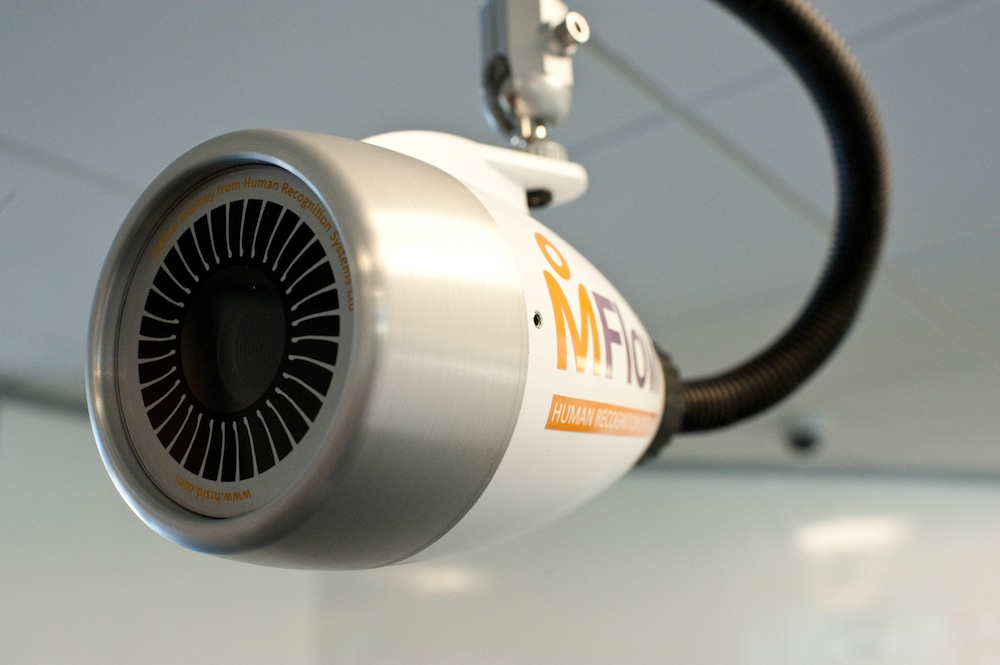
Airport Queue Measurement / Passenger Flow / Movement / Counting Solutions
| Company | Human Recognition Systems |
|---|---|
| Date | 30.05.2013 |
MFlow Journey from Human Recognition Systems provides new insights into passenger traffic at Scotland’s busiest airport to reduce security waiting times and improve throughput
 Human Recognition Systems (HRS), a leader in total biometric solutions, has deployed its state-of-the-art facial recognition system, MFlow Journey, at Edinburgh Airport. The MFlow Journey system is designed to conduct a thorough performance review of passenger traffic through security screening and support Edinburgh Airport in reducing queuing times at peak hours.
Human Recognition Systems (HRS), a leader in total biometric solutions, has deployed its state-of-the-art facial recognition system, MFlow Journey, at Edinburgh Airport. The MFlow Journey system is designed to conduct a thorough performance review of passenger traffic through security screening and support Edinburgh Airport in reducing queuing times at peak hours.
The unique queue measurement solution, which will go live later this month, has been installed to measure the journey time of the 13,000 passengers who pass through security at Edinburgh Airport every day. The real-time information on passenger numbers moving through security will enable the airport to quickly identify and react to bottlenecks by deploying additional staff or opening more security screening lanes. By reducing time spent passing through security, passengers will also be able to enjoy more time in the leisure areas of the airport.
Edinburgh Airport’s decision to engage HRS in the delivery of this world-leading solution follows the successful implementation of MFlow Journey at other Global Infrastructure Partner operated airports, including London Gatwick and London City Airport.
Unique in terms of journey measurement, the system requires no conscious interaction by staff or passengers. The system translates each image into a unique code and as passengers move through the airport MFlow Journey times their movement between specific waypoints.
Graeme Agnew, Head of IT at Edinburgh Airport, said: “At Edinburgh Airport we are always looking at how we can use cutting-edge technology to assist our operational planning and improve the customer experience; the introduction of MFlow Journey will help us do both. As the system doesn’t rely on people carrying Bluetooth or WiFi technology, we are able to collate highly accurate data on the movement of passengers through security screening and then make informed decisions about how we manage this area of the airport in the long term.”
“Without doubt, biometrics is playing an ever more important role within the aviation industry. Advanced new systems are helping to improve airport safety and security as well as support new products and services which will make air travel a faster, simpler and more enjoyable experience. Following the successful implementation of MFlow Journey, we look forward to working with HRS to explore how biometric technology can also benefit passengers in other areas of the airport,” concludes Graeme Agnew.
Jim Slevin, Aviation Business Unit Manager at Human Recognition Systems, commented: “We are delighted to be working with Edinburgh Airport on this project and providing a solution that will deliver operational performance and a positive passenger experience at peak times. The aviation industry is continually looking at innovative ways to provide real-time insight into passengers’ journeys as they move through the airport – biometric technology is an effective and efficient way to provide this data. Capable of being deployed as a complete end-to-end solution, from check in to departure, MFlow Journey is changing the way that airports manage operational challenges and measure passenger experience.”

To find out more follow HRS on Twitter: @HRS_biometrics
Contact
The Bunker
25 Innovation Boulevard
Liverpool
Merseyside
United Kingdom
L7 9PW
- 44 (0)333 456 2001
